Executions Surge Globally With Iran Hitting New Records
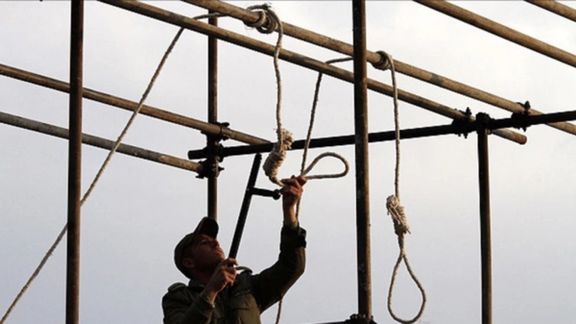
Human rights group Amnesty International says the number of executions in the world rose alarmingly last year, with Iran accounting for the biggest portion of this rise.

Human rights group Amnesty International says the number of executions in the world rose alarmingly last year, with Iran accounting for the biggest portion of this rise.
According to the latest annual report by the Amnesty International published on Tuesday, executions surged 20 percent in 2021 led by China and Iran while the number of death sentences handed down increased by 40 percent.
At least 579 people were killed by states across 18 countries while at least 2,052 were given a death sentence. The figures do not include China, North Korea and Vietnam, where thousands are thought to be executed or sentenced to death each year secretly.
“The increase in executions was primarily driven by rises in the yearly figure for Iran (from at least 246 in 2020 to at least 314 in 2021, a 28-percent increase), which was the highest figure on record since 2017,” the report said.
“The spike in Iran appeared particularly for executions of people convicted of drug-related offences (132), which represented 42 percent of the total and constituted a more than five-fold rise from 2020” -- a flagrant violation of international law which prohibits use of the death penalty for crimes other than those involving intentional killing, the rights group said.
Moreover, Saudi Arabia more than doubled its number of executions, a grim trend that continued in 2022 with the execution of 81 people in a single day in March.
According to figures compiled by two advocacy groups -- Oslo-based Iran Human Rights (IHRNGO) and Paris-based Ensemble Contre la Peine de Mort or ECPM (Together Against the Death Penalty) -- the number of executions in Iran doubled in the second half of 2021, around the time when President Ebrahim Raisi took office.
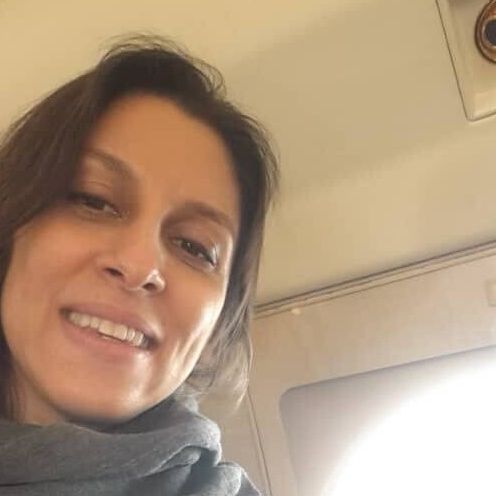
Former British-Iranian hostage Nazanin Zaghari-Ratcliffe says Iran forced her to sign a last-minute false confession at the airport before letting her board the plane as a UK Foreign Office official was witnessing.
Zaghari-Ratcliffe, who returned to London in March along with another dual national after Britain repaid a historic debt of £400 million, said on Monday that she signed the statement "under duress" as a condition of her release after about six years of imprisonment on trumped-up spying charges, expressing worries that Tehran would use the “confession” against her in the future.
Saying that the whole process of signing the forced confession was filmed, she said, “It’s a tool. So, I’m sure they will show that someday.”
She told the BBC that she was taken to the airport by the Iranian Revolutionary Guards without seeing her parents, adding, “Instead I was made to sign the forced confession at the airport in the presence of the British government”.
The former prisoner said she wanted to make sure people knew she had been forced to sign, to prevent the Iranian regime from exploiting her "dehumanizing" confession, which is “just propaganda for the Iranian regime to show how scary they are, and they can do whatever they want to do.”
Iran is holding several Western prisoners in what human rights organizations have dubbed hostage diplomacy, accusing the Islamic Republic of holding dual-nationals as bargaining chips for money or leverage in negotiations with the West, something Tehran denies.
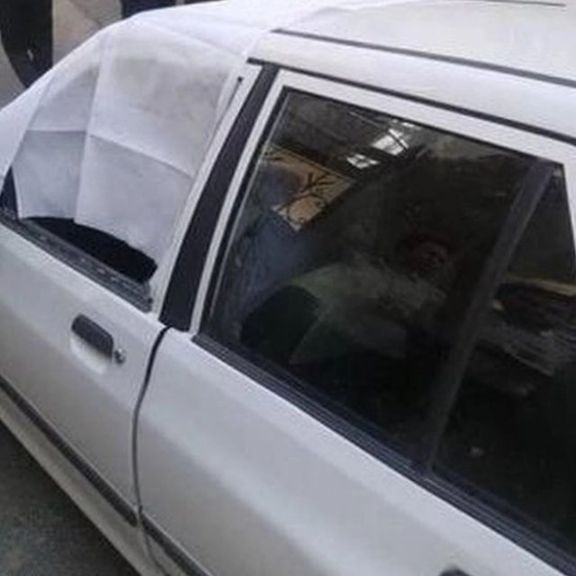
The IRGC official killed by gunmen in Tehran Sunday was responsible for recruiting operatives for terror attacks against Israelis, an informed source has told Iran International.
The source, a European security official, who spoke to Iran International on condition of anonymity said Hassan Sayyad-Khodaei who was shot in front of his house in Tehran in broad daylight Sunday had been involved in a number of terrorist operations against Israelis in three continents including Asia, Europe, and Africa including an attack in the Indian capital, New Delhi, on February 13, 2012.
The intelligence source also told Iran International that Sayyad-Khodaei tried not to attract attention to himself as an intelligence agent and avoided wearing the IRGC uniform. According to the source, Sayyad-Khodaei who went by the alias Shekarchi was fluent in regional languages including Turkish, Kurdish, and Arabic.
“Sayyad-Khodaei was responsible for the work on the ground when the Qods Force’s secretive Unit 840 tasked him with carrying out missions,” the source said.
In the 2012 New Delhi attack, the explosion of a magnetic bomb attached to the car used by the wife of Israel’s defense attaché wounded her and his driver.
Israeli and Indian media at the time said a motorcyclist had placed the explosive device on the vehicle and pointed out that the attack resembled some of the attacks that had killed four of Iran’s nuclear scientists between 2010 and 2012.
Two of the attacks on Iran’s nuclear scientists were carried out with magnetic bombs attached to their cars.
Yoram Cohen, then chief of Israel’s security agency Shin Bet, also accused Iran of trying to take revenge for covert operations, including the assassinations of its nuclear scientists.
On the same day as the New Delhi attack in 2012, other operations against Israeli targets, allegedly by Iranian agents, were uncovered and aborted in Tbilisi, Georgia, and several Central Asian countries.
Then prime minister of Israel, Benjamin Netanyahu, immediately blamed Iran for the bombs aimed at Israeli Embassy personnel in the Indian capital, New Delhi and Tbilisi.
Two days later, on February 14, a series of explosions against Israeli diplomats occurred in Bangkok, Thailand, for which the Thai authorities blamed Iranian nationals. One of the suspects, Saeed Moradi, was seriously injured before the operations were carried out when the bomb meant for the attack exploded at his rented house and injured him. He sustained further injuries during a standoff with the Thai police when a grenade he threw at the police bounced off a tree and severed both his legs.
Moradi was convicted in court for attempting to kill an Israeli diplomat and was sentenced to life. Moradi and his two co-conspirators were freed from Thai prison in November 2020 in exchange for Kylie Moore-Gilbert, an Australian-British prisoner in Iran. They received heroes' welcome upon their arrival to Tehran.
“The Qods Force chose individuals without any connection to the IRGC for these operations. They were civilians who had not had proper military training. Sayyad-Khodaei was responsible for establishing contact with criminals including drug traffickers to carry out such operations on its behalf,” the source told Iran International.
He added that Mansour Rasouli, who was reportedly interrogated by the Mossad a year ago inside Iran, was among the individuals recruited by Khodaei to kill Israelis and others in countries including Turkey and Germany.
On April 30, Israeli media, including Channel 12, released an audio recording with the photo of a man introduced as Iranian national Mansour Rasouli, 52, who they claimed the Mossad had interrogated inside Iran. Israeli media did not provide a source for the audio file that they said Mossad operatives posing as Iranian secret service recorded at Rasouli's home in Iran.
The recording surfaced hours after Iran International's report of an alleged Iranian triple assassination plot. Iran International's diplomatic sources had said a member of the IRGC'S Qods Force had been detained in an unnamed European country for assassination plots in Germany, France and Turkey.
In an audio tape released in early May, a man who introduced himself as Rasouli claimed he had been taken by unknown agents and been coerced to make the confessions in the audio recording.
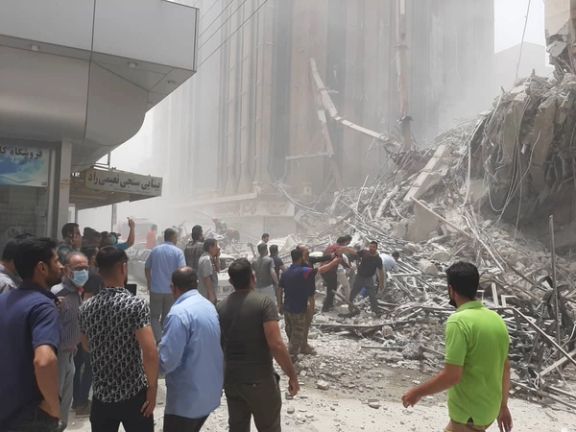
A 10-storey building in Iran's southern city of Abadan partly collapsed on Monday, killing at least five people and trapping over 80 people under the debris.
Operations are still going on to rescue the people buried in the rubble of the residential-commercial property named Metropol in the southwestern Khuzestan province.
A helicopter, seven rescue vehicles, and two teams of rescue dogs are also present at the site of the incident. The number of casualties is increasing every hour and no official estimate is still out from the damages.
According to reports, in addition to emergency teams from nearby cities of Khoramshahr, Mahshahr, and Shadegan , anti-riot forces are also dispatched to the scene as Abadan residents have gathered at the site and are shouting slogans against the city authorities and government.
The head of Khuzestan province's judiciary has ordered an investigation into the building's collapse, and its owner and the contractor who built it have been arrested, Abadan’s special prosecutor Hamid Maranipour said.
The owner and builder, Hossein Abdolbaghi, had previously received a safety award from police, and in 2018 was selected by the Industry Ministry as the "Top Entrepreneur of the Arvand Free Zone", an area of 37,400 hectares at the confluence of the Karun and Arvand (Shatt al-Arab) rivers in the province. He is known to be close to Iran’s security forces.
Videos posted on social media also showed a group of people protesting to Abadan Mayor Hossein Hamidpour, who was present at the scene. According to some reports, the mayor was beaten by the angry protestors.
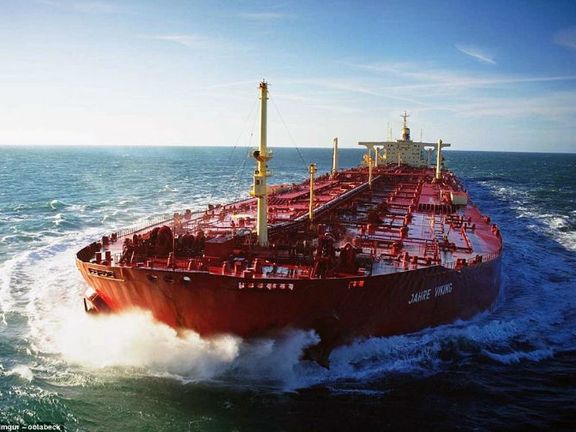
Despite potential oil market competition, Iranian firms are planning to revamp Venezuela’s largest oil refinery, Reuters said Monday in an exclusive report.
The deal would deepen an energy relationship that has become a lifeline for Venezuela’s dilapidated oil industry amid a crisis caused by decades of mismanagement and lack of investments, Reuters said.
But Iran’s Sharq newspaper reported on Sunday that Iran’s energy dealings with its South American ally has backfired, as Venezuela’s discounted oil exports have increased potentially taking market share from Iran.
Both countries are under American sanctions and try to sell their oil by illicit shipments mostly to China, which has increased its purchases since early 2021. Iranians do not hide that China is buying their oil, but the quantity and price remain a state secret. One thing which is clear, Tehran has increased its shipments to more than 700,000-900,000 barrels per day in the past few months.
During the Trump administration, the United States confiscated Iranian fuel shipments on their way to Venezuela and auctioned the cargoes. The Biden administration has not enforced US sanctions vigoruously.
Russia, Iran’s other ally has entered the picture with its own discounted oil for China after Western countries imposed sanctions following the invasion of Ukraine.
Sharq newspaper in its report said that Iran’s deal to ship light crude oil – or gas condensate- to Venezuela has enabled Caracas to boost its crude exports. The Venezuelan oil is too heavy for easy shipping, but when it can mix its product with light Iranian oil, it is able to ship more.
The reason Iran is willing to give its potential competitor light crude, is that it has too much of it and cannot store it indefinitely. Gas condensate is a biproduct of natural gas production, and as long as Iran needs to take gas out of the ground, it has to also take the light crude.
Using Iranian shipments of light crude Venezuela has boosted its production from 450,000 barrels a day in early 2021, to 900,000 barrels in December. Sharq noted that around 600,000 barrels is available for export and China is willing to buy despite US sanctions.
Russia has started offering up to $20 discount on each barrel of its oil and Iranian indirect shipments to China are reported to be unsold on tankers or storage in Asia because China in March and April has shifted to importing Russian oil.
Hamid Hosseini a member of the Iranian association of oil biproducts and petrochemicals exporters, told Sharq that Iran has no space to store 300,000 barrels of light crude it has no markets for. As a result it sells as much as it can to Caracas and imports Venezuelan goods in return, but he did not explain what Venezuela, which itself is in dire economic conditions and shortages could supply to Iran.
In the past there were reports of Iran getting paid in gold for its goods and services by Venezuela, which senior officials in Tehran confirmed.
However, Caracas was able to double its oil exports to China in March, selling 248,000 barrels, according to Rifinitiv data company.
Other Iranian officials told Sharq that Venezuela’s limited oil exports are not a threat to Iran and in return for boosting its ally’s export potential, Tehran has received some “management” rights. Alireza Salehi, an Iranian oil official, said that “If a deal is a win-win arrangement it is defensible.”
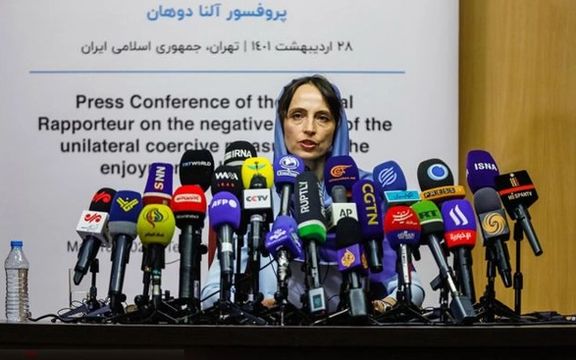
A UN Special Rapporteur has come under fire for receiving donations from repressive regimes, but she says the media accusing her are in violation of ethics.
Last week, Alena Dohan concluded a controversial 11-day visit to Iran in which she rejected appeals by Iranian human rights activists to meet dissidents and did not speak about the crackdown on the ongoing protests. She is the UN Human Rights Council’s Special Rapporteur on the negative impact of unilate7ral coercive measures on the well-being of the people.
To shed further light on the controversy, Iran International sent written questions to her office and received a written response, in which the special rapporteur defended her actions and lack of actions, threatening the media by using language such as “serious violation of ethics may have been committed by some news outlets…ending up in defamation and libelling.”
Criticism of Douhan’s mission has been spearheaded by United Nations Watch (UNW), a Geneva-based UN watchdog. Hillel Neuer, executive director of UNW, has argued that Douhan is a lobbyist for repressive regimes such as China, Russia and Qatar from which she took hundreds of thousands including $200,000 from China for the UN human rights expenses,
“Alena Douhan of Belarus is only able to exploit her UN human rights post to shield brutal regimes—Venezuela’s Maduro, Xi Jinping’s China, and, last week, Khamenei’s Iran—because of her enablers in the international human rights community,” Neuer tweeted Sunday.
In the response to Iran International, Douhan’s office wrote that receiving donations from government’s is “standard practice for the UN” and other countries such as South Korea, Japan and Norway and Russia have also donated to her office. But the issue is that she appeared at a virtual event along Chinese officials who covered up human rights violations committed against millions of Uyghurs.
Douhan has said that reduced revenues from the export of goods, low salaries and the deteriorating economic situation, and inflation have “reduced the capability of the [Iranian] government to maintain the level of social support it used to exercise in the spheres of food, health and housing”. Critics say this is a one-sided judgement as it only blames the sanctions and fails to consider the government’s own inefficiency and wrong policies.
Iranian officials have welcomed Douhan’s assertion that US sanctions have hugely deprived Iranian people of their human rights while stressing that that her mission was solely to investigate the impact of sanctions. The role of this rapporteur was created at the UN Human Rights Council by the adoption of a resolution proposed by Iran on behalf of Non-Aligned Movement in 2014.
Amir-Ali Abolfath, an international affairs expert, told the semi-official Iranian Students News Agency (ISNA) Sunday that Douhan’s visit as a UN representative and her report which will be presented at the next meeting of the UN Human Rights Council in September were important because Iran could use the evidence gathered by her in the future at international courts of law against the United States.
London-based human rights lawyer Shadi Sadr in a tweet Friday alleged that Douhan has become a “mouthpiece for the Islamic Republic”. “She is a disgrace to UN human rights experts,” she said, adding that her words and actions will discredit the UNOHCR among Iranian victims of human rights violations.
Iran has not allowed visits to any of the fourteen UN human rights experts who have made requests to monitor the situation of human rights in the country, including to the special rapporteurs for monitoring human rights in Iran appointed by the UN Human Rights Council.
Iranian Nobel Peace Prize Laureate Shirin Ebadi is among critics who said Iran would exploit Douhan’s visit to deflect attention from its human rights violations, and called for the postponement Douhan’s visit until Iran lets in Javaid Rehman, the UN Special Rapporteur on Human Rights.
Referring to such demands, in her press conference in Tehran Wednesday, Douhan said her critics ignore the subject of her mission and added that countries that impose sanctions have always opposed her missions. “I’m not a Special Rapporteur on Human Rights, others must speak about [human rights violations in those countries],” she said but admitted that Iran has not allowed any of the other Special Rapporteurs in the past 17 years. “I hope this is not the first and the last.”